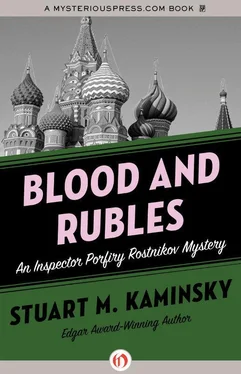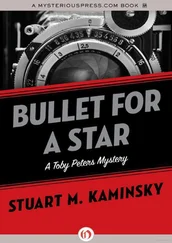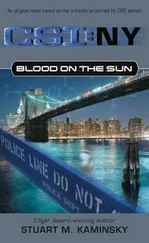Stuart Kaminsky - Blood and Rubles
Здесь есть возможность читать онлайн «Stuart Kaminsky - Blood and Rubles» весь текст электронной книги совершенно бесплатно (целиком полную версию без сокращений). В некоторых случаях можно слушать аудио, скачать через торрент в формате fb2 и присутствует краткое содержание. Год выпуска: 2012, Жанр: Полицейский детектив, на английском языке. Описание произведения, (предисловие) а так же отзывы посетителей доступны на портале библиотеки ЛибКат.
- Название:Blood and Rubles
- Автор:
- Жанр:
- Год:2012
- ISBN:нет данных
- Рейтинг книги:3 / 5. Голосов: 1
-
Избранное:Добавить в избранное
- Отзывы:
-
Ваша оценка:
- 60
- 1
- 2
- 3
- 4
- 5
Blood and Rubles: краткое содержание, описание и аннотация
Предлагаем к чтению аннотацию, описание, краткое содержание или предисловие (зависит от того, что написал сам автор книги «Blood and Rubles»). Если вы не нашли необходимую информацию о книге — напишите в комментариях, мы постараемся отыскать её.
Blood and Rubles — читать онлайн бесплатно полную книгу (весь текст) целиком
Ниже представлен текст книги, разбитый по страницам. Система сохранения места последней прочитанной страницы, позволяет с удобством читать онлайн бесплатно книгу «Blood and Rubles», без необходимости каждый раз заново искать на чём Вы остановились. Поставьте закладку, и сможете в любой момент перейти на страницу, на которой закончили чтение.
Интервал:
Закладка:
“Mafia,” ran voices through the crowd.
Elena Timofeyeva knew why the men in uniform were hurling their grappling lines to the roof of the two-story building, lines that were as likely to pull down the ancient bricks of the roof as to support the weight of overarmed men wearing supposedly bulletproof vests.
This was a show. Elena and Karpo had been assigned to the show as representatives of the Office of Special Investigation. They were to work, according to Colonel Snitkonoy, as liaison with the tax police, who were now scurrying up the sides of the building to the applause of the crowd. It was not the Moscow Circus, but it was quite a spectacle and cost nothing.
Karpo and Elena knew that there was no need for this show. The tax police could simply have knocked down the door. This was not a raid on a dangerous group or individual, but a follow-up on a tip from a reliable informant. The old man who owned the building had recently died. He had accumulated valuable jewelry and other items subject to taxation.
It was the job of the tax police to enforce the new tax laws that would bring in many billions of rubles from individual citizens, businesses, and foreigners doing business in a new but more than slightly frayed Russia. It was also the job of the tax police to strike fear into the people so that they would pay their taxes. Daytime raids featuring fully armed men were now common. The media were always informed when raids would take place. It was common now to see bewildered businessmen led out of their offices with their hands cuffed behind their backs.
A position in the tax police was much desired, for the tax police received not only their salaries but also a small percentage of what they recovered. Karpo doubted that such rampant capitalism had ever been practiced even in the United States.
The crowd had grown larger as the tax police officers scampered to the rooftop or crashed through windows on their way up the lines. As glass shattered and sprayed the crowd below, the onlookers jumped back and covered their heads.
Captain Sergei Valarov of the tax police, an ex-Soviet army officer, strode to Elena and Karpo and said, “The building is secure.” Valarov looked like a captain-trim, efficient, with dark straight hair and the hint of a mustache.
No bullhorn had been brought forth to order the occupants out. No one had knocked on the door of the two-story house. It struck Elena that the front door might very well be open or that a knock might have resulted in a reluctant invitation from the building’s occupant to come in.
“Thank you,” said Emil Karpo. He followed the captain across the street and through the door of the house, which had been opened by one of the uniformed men who had scaled the building.
The crowd followed the captain, the vampire, and the young woman across the street, where they were stopped by two dozen uniformed police.
“As you know,” the captain said as he strode past the saluting officer at the door, “we have been observing this house for some time.”
Both Elena and Karpo were well aware of this.
“And,” Captain Valarov added as he walked down a dark, narrow passageway with photographers behind him snapping and flashing madly, “we had reason to believe that a hoard of artifacts of historical significance was being kept by an old man named Dokorov. These artifacts-and we had reason to believe that it was a substantial collection-had never been taxed. In addition to which, some of them might be protected artworks. In that case they would belong to the state.”
Both Karpo and Elena were certain that Captain Valarov had more than “reason to believe” the house was worth raiding. Otherwise he would not have been instructed to stage the elaborate invasion that would certainly be the highlight of the evening news on television.
The captain’s step was certain. Elena, Karpo, and a select group of hand-chosen press representatives, some juggling video cameras, struggled through the narrow passageway for a better view.
What they saw through the next door was beyond what they had imagined, beyond what Valarov and probably his superiors had imagined. The interior of the house had been gutted. They stood in a large storage space with shelves piled almost two stories high, their upper reaches accessible only by the long ladder that leaned against the wall to their left.
Flashbulbs went wild. Captain Sergei Valarov stood flat-footed looking at the museum before him: rows of books, jewelry, a chandelier, paintings, serving dishes, wooden boxes marked MICROSCOPES, MANUSCRIPTS, and SMALL ICONS, and much more.
Karpo reached forward and touched the shoulder of the posing Valarov, who showed only the slightest trace of tightening in his cheeks to indicate that this was much more than he had expected to find inside the house.
“It might be best if the press were taken outside and told that you will be out in several minutes with a full report. Meanwhile I suggest you contact your superiors for instruction.”
The captain nodded, blew out some air, and turned with the help of three of his men to urge the complaining crowd into the passageway. When they were gone, Karpo motioned to Elena, who closed the door. The two police officers were alone in the room.
“Notes,” Karpo said, and Elena took out her notebook and a white pen that had BARNES amp; NOBLE printed in red on its side.
He walked slowly down an aisle. The noise of demanding reporters could be heard beyond the closed door.
“Preliminary report,” he said. “Random observations. Family painting of the Romanovs, official. If the date is to be believed, it is the last such portrait of the family. Shelves full of books are held in place by gold- and silver-framed icons.”
He opened one book and went on. “First edition, Bible, dated 1639, signed ‘To Ilya, Ivan Fyodorov.’”
Elena touched the book. She knew that Fedorov was the Russian Gutenberg. There appeared to be a dozen similar-looking volumes.
“There are hundreds of books,” Elena could not stop herself from saying.
“Several thousand,” Karpo amended, and opened a wooden box on the shelf before him.
Inside were tiny, fragile magnifying glasses, each in a separate compartment protected by cotton. Lying on top of the glasses was a yellowing page torn from a book. Karpo scanned the page and handed it to Elena, who read, “The microscope was invented by a Dutch oculist in the seventeenth century. It was a simple thing. He made each one himself. They worked surprisingly well. Most have disappeared into private collections or simply been lost. In 1923 a complete box of Leeuwenhoek microscopes was reportedly discovered in a pharmacy in Belgrade. The box had disappeared by the time the police arrived. The pharmacist was ordered to undergo psychiatric examination.”
“And this …?” Elena began.
“… may well be that box,” said Karpo, holding one of the glass and wire objects in his palm.
“This room,” she said, looking around, “it must have more treasures than the Kremlin museum.”
A mouse scampered across an old piece of paper somewhere in a dark corner.
“Not more, perhaps, but different,” said Karpo.
“My God,” said Elena.
Since Karpo believed in neither God nor blasphemy, he continued randomly selecting items, some of which he was unable to identify, but jewelry from the various courts of Russia was certain, including one very ancient ornate gold crown that, if Karpo read the worn inscription properly, had belonged to Ivan the Terrible.
“We will have to call in the experts on this,” he finally said.
Elena put her notebook away and touched the crown of Ivan the Terrible. It was, like the room they were in, cool, damp, and smelled of mildew.
“Millions,” she muttered. “Worth millions.”
Читать дальшеИнтервал:
Закладка:
Похожие книги на «Blood and Rubles»
Представляем Вашему вниманию похожие книги на «Blood and Rubles» списком для выбора. Мы отобрали схожую по названию и смыслу литературу в надежде предоставить читателям больше вариантов отыскать новые, интересные, ещё непрочитанные произведения.
Обсуждение, отзывы о книге «Blood and Rubles» и просто собственные мнения читателей. Оставьте ваши комментарии, напишите, что Вы думаете о произведении, его смысле или главных героях. Укажите что конкретно понравилось, а что нет, и почему Вы так считаете.












